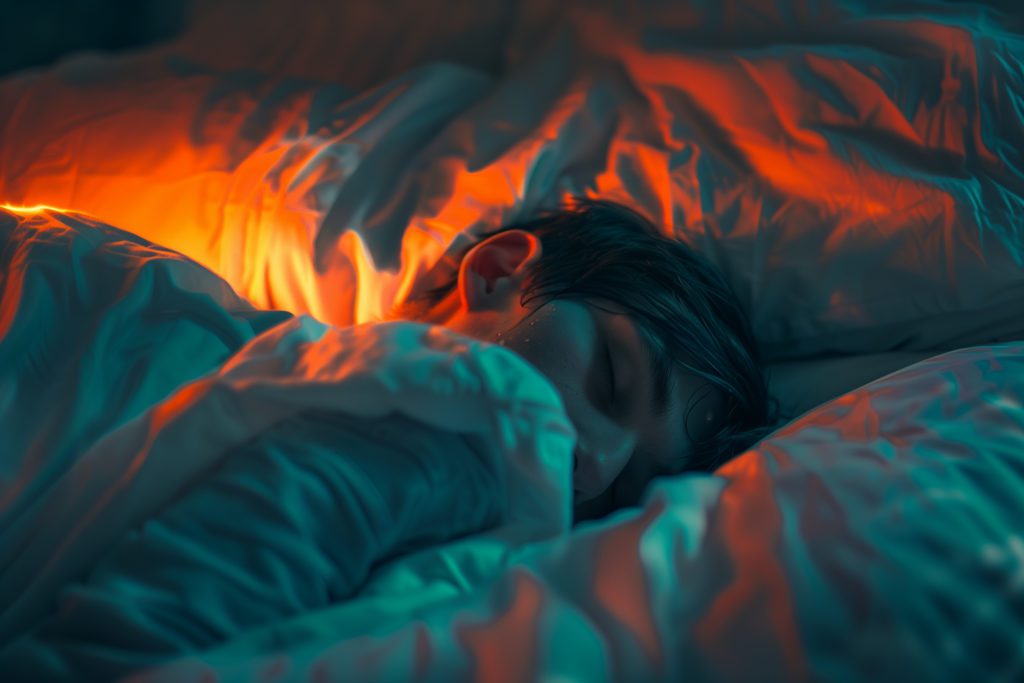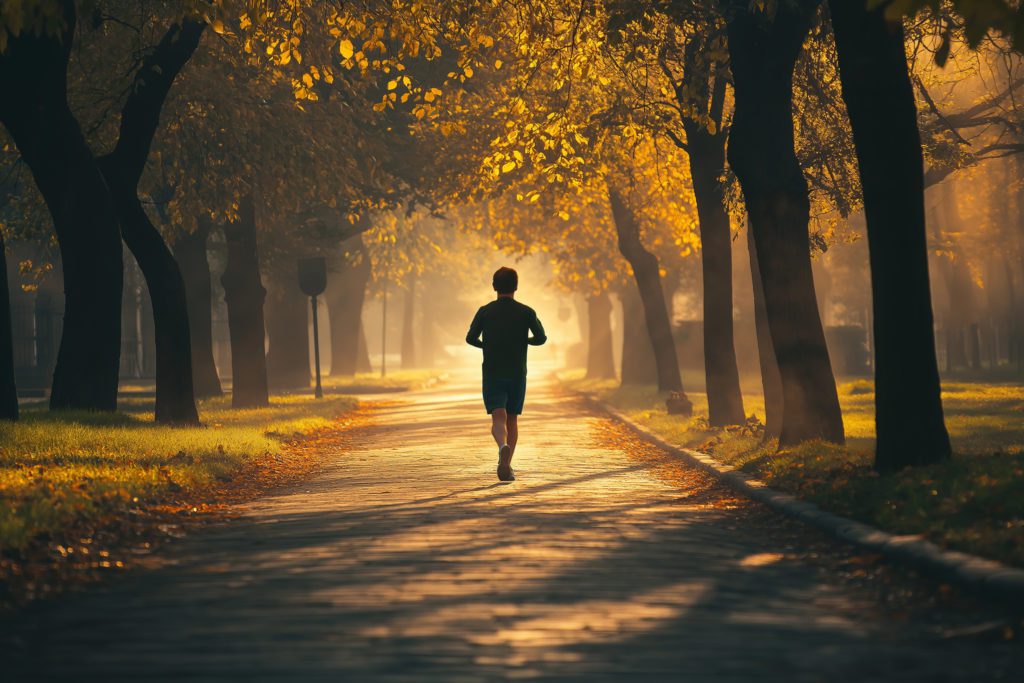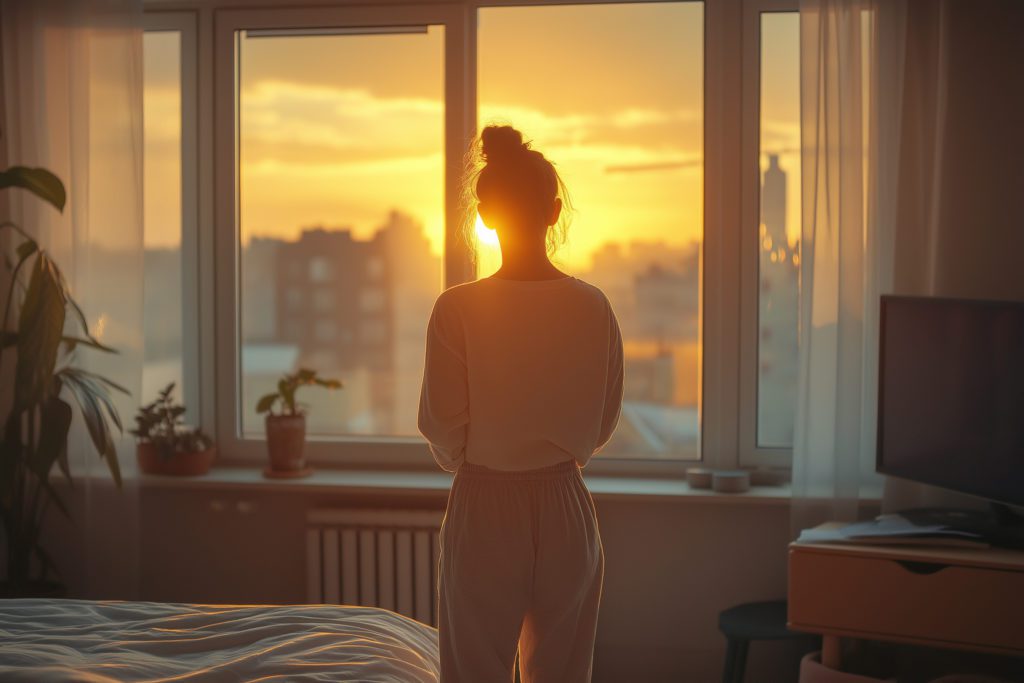
Light or Heavy Sleeper? Here’s Why It’s Important
Learn how sleep cycles determine whether someone is a light or heavy sleeper and explore habits that encourage good, deep sleep.

Some people may wake just from a flash of light, whereas others could have ten alarms blaring simultaneously and still remain fast asleep. These discrepancies between light and heavy sleepers can send envy through them both. One can easily sleep through the night without worrying about being awoken at every minor disturbance, and the other doesn’t have to worry about oversleeping an alarm in the morning.
According to a YouGov survey, the world is split pretty evenly between light and heavy sleepers, and knowing your categorization can be crucial for finding success while sleeping. Specifically, light sleepers may need to be more careful of where they sleep or what they eat and drink before bed.
What Makes You a Light or Heavy Sleeper?
Before getting into the differences that separate a light or heavy sleeper, it’s first important to understand sleep cycles.
We typically move through four sleep cycles during the night, each lasting around 90 minutes.
Within each sleep cycle are four sleep stages. Three of these are non-rapid eye movement (NREM) stages, and the last is the REM stage. Typically, each subsequent stage is longer than the one before it—the first stage may only be 5-10 minutes, while REM sleep is the longest at up to 60 minutes. What we think of as “deep sleep” occurs during the final NREM stage, right before moving to REM sleep.
As for what makes someone a light or heavy sleeper, there are a few possibilities.
The Sleep Cycle We Spend Most the Night In
What makes someone a light or heavy sleeper may boil down to which sleep stages they spend the most time in.
Some researchers suspect that light sleepers spend most of their time in REM sleep, which is the final sleep cycle before you awaken. Thus, light sleepers may not get enough time in deep sleep, or may not even enter that third NREM stage at all.
In comparison, heavy sleepers spend a lot of time in NREM stages, offering them deep and restful sleep.
Sleep Spindles
Some studies suggest that we have “sleep spindles” in our brains, which are rhythms that allow us to ignore certain distractions when asleep. Those who are heavy sleepers may potentially have more of these spindles than those who are light sleepers.
These sleep spindles may relate to your arousal threshold, or how strong a light, sound, or other stimulus has to be to wake you up. As expected, light sleepers have arousal thresholds that are lower than heavy sleepers. Factors that can affect your arousal threshold include how long you were awake, your stress levels, your age, and what stage of sleep you’re in.
Stress
Part of what makes someone a light sleeper may center around the mind.
Some people have stressful thoughts associated with bedtime and falling asleep that can prevent them from getting deep sleep. Additionally, thoughts from the day, such as current events or work stress, may make it hard to quiet the brain and fall asleep. Research has also shown that those with high amounts of stress tend to have more disturbed sleep.
Lifestyle Habits
Sometimes, being a light sleeper is due to certain lifestyle habits, and when remedied, you may find yourself getting deeper sleep.
Try cutting out the following to improve your sleep quality:
- Having an inconsistent sleep schedule
- Drinking alcohol too close to bedtime
- Sleeping in a bright or loud environment
Why It’s Important to Know Your Sleep Type
Knowing if you’re a light or heavy sleeper is important, as some health conditions may be to blame. For example, some sleep disorders, such as obstructive sleep apnea, can contribute to light sleep because you wake during the night from irregular breathing. By acknowledging that you’re a light sleeper, you can watch for other symptoms and seek help from a doctor.
Beyond the possibility of a sleep disorder or health condition, knowing if you’re a light or heavy sleeper can influence the steps you need to take during the day and at bedtime to sleep better. Namely, those who are light sleepers may have to be more vigilant in their sleep hygiene, whereas heavy sleepers may not have to worry as much,
Light or Heavy Sleeper? Here’s What Really Matters
Knowing if you’re a light or heavy sleeper can help explain what you need in order to fall and stay asleep (especially if you’re a light sleeper), but what really matters is if you wake up feeling rested. If you do, it’s a good sign that you’re getting the deep sleep you need. If not, you may need to put in some more effort to help your body hit the deep sleep.
If you feel groggy during the day, experience memory problems, have a low attention span, or feel irritable, it may be a sign that you could use more deep, quality sleep.
As we know, our sleep follows a cycle of the four stages, but when you wake up during the night, it interrupts this cycle, keeping you from getting sufficient amounts of restorative sleep. This may be why light sleepers wake up feeling like they didn’t get enough sleep—they’re not getting as much restorative sleep as heavy sleepers.
If you need to get more deep sleep, try implementing the following:
- Manage stress. Higher levels of stress can affect your sleep, making it harder to fall asleep and causing more nighttime wakings. If you cannot cut the cause of your stress from your life, try managing it in healthy ways, such as seeking therapy or focusing on deep breathing through meditation.
- Keep a strict sleep schedule. Bedtimes don’t only benefit children. Keeping a set bedtime and wake-up time can help regulate your circadian rhythm, which may help you fall asleep more easily. For the best results, you’ll need to stick with it on the weekend, too.
- Keep electronics away from your bedroom. For the light sleepers, keeping electronics out of the room ensures that a text message or a change in volume on the TV doesn’t wake you up at night.
- Try an eye mask and earplugs. If noise and light keep you awake or wake you during the night, wearing an eye mask and earplugs can help drown out noise and block light, letting you stay asleep longer.
- Avoid sugary snacks before bed. A sugar spike may make it difficult to fall asleep, so try to avoid extra-sugary desserts before bedtime.
Whether you’re a light or heavy sleeper, the above habits can help you sleep better and may just make it easier to achieve the deep, restful sleep that leaves you ready to tackle the day.
FAQ
Does being a light sleeper mean I’m not getting good sleep?
Not necessarily. If you wake up feeling rested and energized, your sleep is probably fine. But if you’re constantly groggy, irritable, or struggling to focus, you may need to work on getting more deep, restorative sleep.
Why do I wake up so easily while others sleep through anything?
It might be because you’re spending more time in lighter sleep stages like REM, or you have fewer "sleep spindles"—brain rhythms that help block out noise and disruptions. Stress, lifestyle habits, and even genetics can also play a role.
Can I train myself to be a heavier sleeper?
Yes! While some people are naturally light sleepers, improving sleep hygiene—like sticking to a consistent sleep schedule, reducing stress, and optimizing your sleep environment—can help you sleep more deeply and wake up less often.
Can stress really make me a lighter sleeper?
Absolutely. High stress levels can keep your brain in a more alert state, making it harder to fall into deep sleep. Practicing relaxation techniques before bed, like meditation or deep breathing, can help.
Do light sleepers need more sleep than heavy sleepers?
Not necessarily, but light sleepers might need to be more mindful of their sleep quality. If you're waking up frequently, you may need to allow extra sleep time to make up for lost deep sleep.
Why do I wake up at the same time every night?
Your body follows a natural rhythm, but waking up at the same time every night could also be due to stress, a full bladder, or even blood sugar fluctuations. Try tracking when it happens to spot patterns!

Written by
Jessica G
Medical writer freelancer who has written hundreds of articles on varying topics. Masters of Engineering degree in Biomedical Engineering.
Download Pillow
Get help
Press & News
Legal
Connect
X (Twitter)
Company
Copyright © Neybox Digital Ltd.



